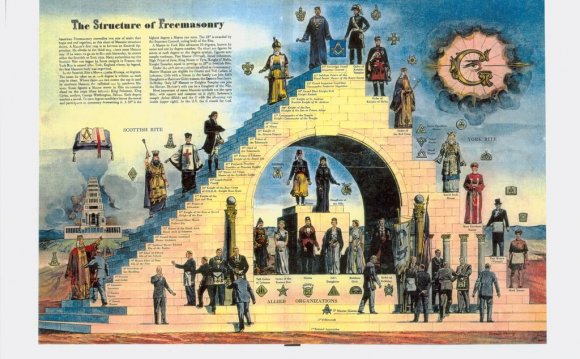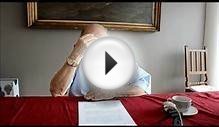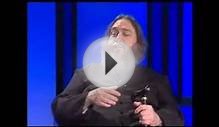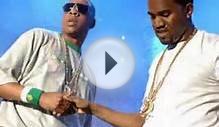
Russ Smart intently examines the teaching and practices of freemasonry from the Christian, scriptural worldview perspective. What he finds reveals distinct variations between Freemasonry and Christian doctrine and exercise.
Freemasonry : Its Background History
You will find most likely couple of subjects as shrouded in mystery and misunderstanding as those of Freemasonry. Known under a number of names (the Craft, the Brotherhood, an order, the Fraternal Order, the Lodge, etc.), Masonry continues to be aligned with the Christian chapel and also the occult. An issue for a lot of whether inside the Order or without may be the question from the Mason’s ultimate allegiance. If, actually, there's no significant theological distinction between the chapel and Freemasonry, their antagonists don't have any basis which to denounce them. However, if you will find values and practices in Masonry which are incompatible with scriptural Christianity, it becomes imperative for that non-Mason and Mason alike to know the real teachings from the Lodge.
A brief history from the Lodge isn't easily recognizable. Together with individuals who think that Freemasonry had Christian origins are an increasing number of Masonic authors who espouse an occultic origin for that Craft. You will find individuals who indicate the Craft was an outgrowth from the Ancient Mystery Schools or it had become first connected using the Druids or even the Illuminati. To ensure that the person to create a correct decision regarding Freemasonry, he or she must first comprehend the motivation from the author.
Masonic authors Delmar Darrah, A. S. MacBride, and Melvin Manley explain the unreliability of numerous of the fellow Masonic authors. Darrah, in the book entitled Background And Evolution Of Freemasonry, claims that “Masons have thought the items in regards to the origin from the institution they desired to believe and also have gone forth and said excitedly as details. When links were missing, they've been provided by drawing upon fertile creativeness.”(1)
Christianity and also the Craft
Leading Masonic government bodies within the 18th and 19th centuries held a exclusively Christian interpretation of Freemasonry. Such leaders as Rev. James Anderson, William J. Hughan, William Hutchinson, Rev. George Oliver, yet others were built with a Christian look at their Craft.(2) Hutchinson, particularly, noted that Jesus was the instance for that Master Mason. He mentioned, “The Master Mason signifies a guy underneath the Christian doctrine saved in the grave of iniquity and elevated towards the belief of salvation. Because the great testimonial that we're risen in the condition of corruption, we bear the brand from the Holy Trinity because the insignia in our vows as well as the foundation from the Master’s order.”(3)
The Anti-Masonic Movement
The last decade between 1826 and 1836 symbolized difficult years for that Masonic Order. After several occurrences that cast an adverse light on Freemasonry, (4) an increasing anti-Masonic sentiment started to emerge. Consequently, there is full of exodus of Christian believers in the Lodge, therefore developing a vacuum to become filled by individuals who held a non-Christian look at Masonry. Throughout this time around Albert Pike grabbed the chance to spread and entrench his questionnable interpretation from the Craft. Pike yet others started to reinterpret the indicating the Craft.
The paganization from the Lodge happened over several decades, but it didn't achieve awareness before the latter area of the 1800s. Nevertheless, it wasn't before the 20's, when a lot of books started showing up in publications that stated questionnable roots for that Craft, these efforts grew to become broadly known.
Masonic Universalism
The anti-Masonic movement worked Freemasonry a serious blow. However, the exodus of huge amounts of Christian believers demonstrated to become a backing factor(5) for that non-Christian forces from the Craft. When the Christian majority had left the Craft, Pike ended up being in a position to redesign it in ways that will support his questionnable sights.
It's interesting to notice that throughout the time that Pike was heavily involved with his paganizing process, the Craft was going through a restored development in membership from Christian believers. Nearly all these new Christian people symbolized chapel leadership and recognized the Christian interpretation of Hutchinson, Oliver, Hughan, yet others. Their influence, however, wasn’t enough to counterbalance the growing paganization from the Lodge.
Macho P. Hall, a 33rd degree Mason, was among the early authors who stated a questionnable origin for Freemasonry. In the book titled The Lost Secrets of Freemasonry, he states that Freemasonry isn't a material factor: it's a universal expression from the Divine Knowledge. “The Masonic order isn't a mere social organization, but consists of all individuals who've banded themselves together to understand and use the concepts of mysticism and also the occult rituals.”(6)
Hall (and a number of other authors including Pike) produced a questionnable history for Freemasonry that will later take hold and also be to get the recognized knowledge of Masonic roots. Because this new interpretation became predominant within the minds from the membership, Christianity had been basically eradicated in the Craft. It grew to become unthinkable to say the title of Christ in order to pray within the title of Jesus. The Craft was set firmly on the floor of “universalism.”
The main standard for membership was, and remains, the candidate have confidence in “God.” This god might be Krishna, Buddha, Allah, or other god, but Jesus isn't that need considering anything further than their equal.
YOU MIGHT ALSO LIKE












